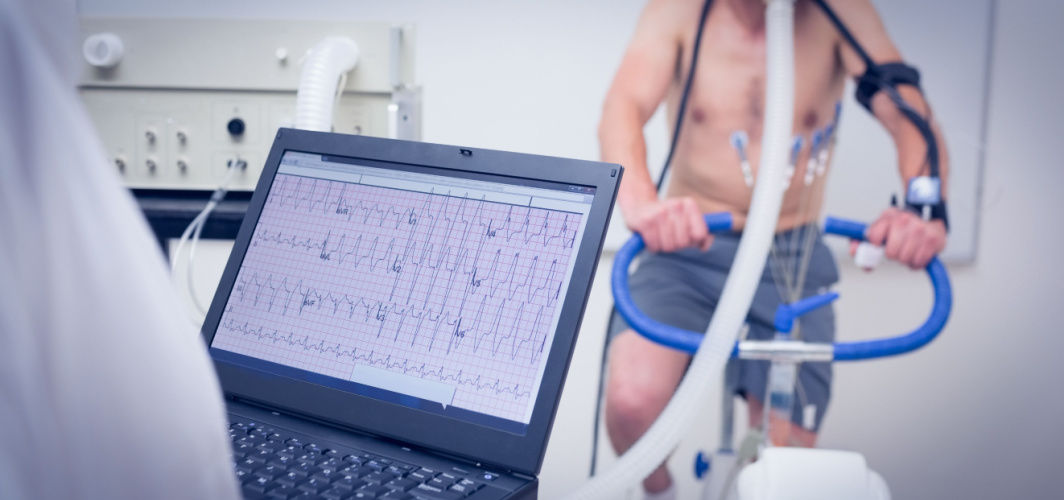Heart Conditions
Can Heart Disease Run In Your Family?
4 min read
By Apollo 24|7, Published on - 31 May 2023, Updated on - 16 June 2023
Share this article
0
0 like

While we are aware that some diseases such as diabetes can be passed on to the next generation, is the same for heart ailments? You’ll be surprised to know that heart disease can be inherited from the previous generation. Since genes play some role in heart-related conditions, you can ensure your risk by getting some tests done. In this article, we are going to discuss those various diseases and how to keep them in check.
Is Heart Disease Genetic?
When some traits get passed from one generation to another through genes, the process is called heredity. Genetic factors are likely to play a role in increased blood pressure, heart disease and other related conditions. Hence, people with a family history of heart problems carry a higher risk of acquiring cardiovascular diseases. The risk can increase further if heredity combines with an unhealthy lifestyle.
Inherited Cardiac Conditions
Inherited cardiac condition (ICC), also known as genetic cardiac conditions, is an umbrella term that covers several rare diseases affecting the heart. ICCs are often caused by a mutation in one or more of our genes. This means if someone in your family has a faulty gene for a heart condition then there is a 50% chance of your children inheriting the same disease. The effects that these conditions might have on your family are enormous and can also be life-threatening.
Understanding Family History
Understanding your family’s medical history can help in determining if heart disease runs in your family. With the help of a health professional, you can draw up a medical tree for your family. This will help you discover family members who might have suffered from similar conditions in the past. It will organise your information and will help identify the exact pattern of inheritance. The family tree is sometimes also referred to as a pedigree.
Three Common Inherited Heart Diseases
1. Familial hypertrophic cardiomyopathy
Familial hypertrophic cardiomyopathy is a common inherited heart condition that affects people of any age group. It causes a part or all of the heart muscle to thicken, thereby hampering its ability to contract and relax while pumping blood. However, getting medical help early can help prevent the disease from progressing.
2. Familial dilated cardiomyopathy
Familial dilated cardiomyopathy does the exact opposite of the previous condition. It causes the heart muscle to become thin and weak. The treatment for this particular condition involves managing symptoms, preventing the worsening of the condition and protecting yourself from life-threatening complications.
3. Familial hypercholesterolemia
An inherited cause of coronary heart disease, familial hypercholesterolemia is caused by the accumulation of cholesterol. It causes the arteries to either partially or completely block blood flow. If left untreated you can either have a stroke or suffer from a heart attack.
How To Know Your Risk For Genetic Heart Conditions?
Tests that may help identify genetic heart disease include:
- Physical exam: A doctor shall ask you about your and your family’s medical history, followed by some tests.
- Genetic testing: A genetic test can help identify DNA changes that can lead to heart disease. You should have genetic counselling for heart disease before taking this test.
- Stress test: Also known as an exercise test, this test measures the functioning of your heart while doing physical activity.
- Electrophysiology study: An electrophysiologist measures electrical activity by inserting a thin tube through one of your blood vessels.
How To Prevent Genetic Heart Disease?
If you already have a family history of heart disease, adopting the following steps can be beneficial in preventing them. They include -
- Follow a healthy diet
- Be physically active
- Maintain a good weight
- Quit smoking completely
- Strictly limit your alcohol use
- Test your cholesterol levels frequently
- Control your blood pressure
- Keep your diabetes in check (if you have it)
- Get regular screenings and tests on the recommendation of your doctor
- Take medications if necessary
Regular health check-ups can help in identifying biological changes in your or your family member’s body. If you still feel like you need to know more then you must get in contact with a medical professional as soon as you can. For more doubts,
Consult Apollo’s Cardiologists
Medically reviewed by Dr Sonia Bhatt
Heart Conditions
Leave Comment
Recommended for you

Heart Conditions
Does poor oral hygiene increase the risk of heart disease?
Various studies have shown that people who have poor oral health are at an increased risk of cardiovascular conditions.

Heart Conditions
These Lifestyle Changes Can Save You From A Heart Attack
An unhealthy diet and a sedentary lifestyle are major risk factors for heart disease and heart attacks. Read on to know what can help you reduce the risk of a heart attack.

Heart Conditions
Types Of Heart Tests: Uses And When To Contact A Doctor
Heart tests are crucial for monitoring overall heart health, and diagnosing abnormalities and signs of serious diseases. Learn more about when to contact a doctor for heart-related concerns.
Subscribe
Sign up for our free Health Library Daily Newsletter
Get doctor-approved health tips, news, and more.
Visual Stories

World Heart Day 2021: Take charge of your health
Tap to continue exploring
Recommended for you

Heart Conditions
Does poor oral hygiene increase the risk of heart disease?
Various studies have shown that people who have poor oral health are at an increased risk of cardiovascular conditions.

Heart Conditions
These Lifestyle Changes Can Save You From A Heart Attack
An unhealthy diet and a sedentary lifestyle are major risk factors for heart disease and heart attacks. Read on to know what can help you reduce the risk of a heart attack.

Heart Conditions
Types Of Heart Tests: Uses And When To Contact A Doctor
Heart tests are crucial for monitoring overall heart health, and diagnosing abnormalities and signs of serious diseases. Learn more about when to contact a doctor for heart-related concerns.
